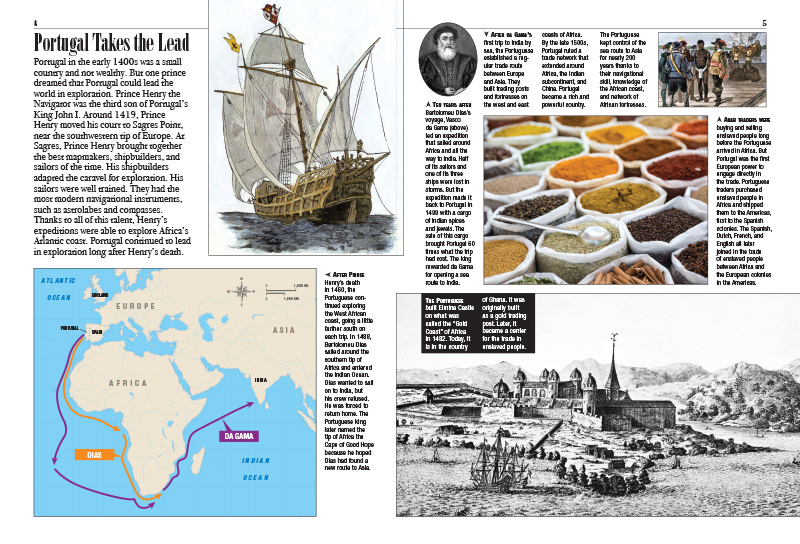
Line of sight vietnam pc download. SS6H6.The student will analyze the impact of European exploration and colonization on various world regions. |
Early European History
| From the 15th century on, explorers discovered new lands for European countries in the Americas, Africa, and Asia. Monarchs in Europe began to colonize these new lands. They each wanted to create the largest empire. The desire to create an empire by extending control over more land is known as colonialism. It can also be called imperialism. This grab for more land lasted through the late 19th and early 20th centuries and even added to causes of World War I. Here are a few of the lands claimed by various European countries. |
Between 1000 and 1650, a series of interconnected developments occurred in Europe that provided the impetus for the exploration and subsequent colonization of America. European Exploration and Colonization of the Americas.
Causes of colonizationThere were three major causes of European exploration and colonization.
- Religion: Many European nations sent missionaries to spread their religious beliefs to new lands. Also, some settlers left Europe to find religious freedom.
- Natural resources: Natural resources were very important to European empires. European nations explored new routes to gain access to the spice trade in Asia, and they colonized regions to have access to their resources and raw materials.
- Market for goods: Markets for trade goods were also important to Europe. European workers made raw materials into manufactured products. Having colonies allowed the Europeans to sell these manufactured goods to people who needed them.
European empires
West Africa—Portugal
Portugal began exploring West Africa before the Americas were discovered. The Portuguese were searching for a sea route to the Indian Ocean so they could have greater control over the East Indian spice trade. In the 15th century, Prince Henry the Navigator paid for many journeys to the west coast of Africa, and Portuguese explorers reached the Indian Ocean in 1488. After Spain and Portugal established colonies in the Western Hemisphere, they needed people to work the land. Both countries' colonies relied on slave labor from West Africa. Portuguese explorers claimed much of the West African coast. Portugal dominated the African slave trade for most of the 16th century.
The Americas—Spain
Christopher Columbus claimed the West Indies, or the Americas, for Spain in 1492. Soon after, Spain began establishing colonies in the Caribbean Sea, South America, and North America. Spain wanted the natural resources found in these new lands. Other countries such as Portugal, France, and England also started colonies in the Western hemisphere.
Brazil—Portugal
In 1494, Spain and Portugal signed the Treaty of Tordesillas. In this treaty, the two countries agreed to divide control of unexplored lands according to an imaginary line running down the middle of the Atlantic Ocean. This was known as a demarcation line. Spain had the right to claim land west of the line. Portugal had the right to claim land east of the line. Brazil was east of the line. In, 1500, Pedro Álvares Cabral claimed Brazil for Portugal. Spain claimed the land in South America west of the line.
The Philippines—Spain
In 1521, Ferdinand Magellan claimed the Philippines for Spain. This gave Spain more land. It also gave Spain a source for spices in Asia. The Philippines were a Spanish colony until after the Spanish-American War in 1898. After the war, Spain gave the Philippines to the United States.
New France—France
In 1534, Jacques Cartier explored the St. Lawrence River for the French. In 1608, Samuel de Champlain established the settlement of Québec on the same river. The colony of New France grew to include the area around the Great Lakes. It also included much of what is now the Midwestern part of the United States.
Jamestown, Virginia—England
In 1606, King James I of England granted a charter to the London Company to settle the area now known as Virginia and North Carolina. The colony of Jamestown became the first permanent English settlement in North America in 1607.
India—England
In the 1600s, the English East India Company was formed to trade with the East Indies. Competing with the other European empires, the East India Company allowed England to colonize India and to control trade resources in Asia.
Australia—England
England explored and claimed Australia in 1770. In 1788, it began establishing colonies on the continent. Australia remained under control of the United Kingdom (England) until it gained independence in the 20th century.
Midtown madness 3 download for pc. Midtown Madness 3 PC Game is an amazing open world racing video game which is the part of the Midtown Madness series. This racing video game was developed by Digital Illusions CE and published by Microsoft Game Studios. This racing video game containing amazing attractive graphic features.
Colonialism and the origins of World War I
Tension was already high between countries in Europe when World War I broke out in 1914. Throughout the late 19th and early 20th centuries, countries in Europe had tried to expand their influence in lands overseas. This drive to colonize led to new European colonies in Asia and Africa and was fueled by a desire for more power as well as a need for raw materials. Many European countries were quickly becoming industrial and needed these materials for their factories. As each country grabbed more land and expanded their empires, tensions rose between the countries. Each country felt that a bigger empire would mean more power and felt threatened when another country acquired more land.
Causes of WWI
